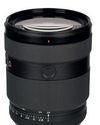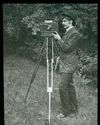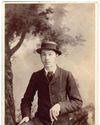
The Royal Geographical Society was founded in London in 1830, just nine years before the announcement of photography in 1839. Despite the limitations of early processes, the role of photographer would become an important part of 19th-century geographic expeditions. While initially regarded as scientific documents and records, much of the work held in the Society’s photographic collection would later be appreciated for its historic and aesthetic values.
With over 750,000 items; from Daguerreotypes, glass plate negatives, lantern slides and travel albums, up to contemporary digital field work, the archive functions as an academic research facility and commercial image library. For several years, the Society has collaborated with Georges Charlier of Salto Ulbeek Publishers in Belgium, on limited-edition prints using the 19th-century platinum printing process. These include photographs from Sir Ernest Shackleton’s Antarctic exploration (1914-18) and the 1921 and 1953 Mount Everest expeditions.
I recently had the opportunity to speak to Georges Charlier about his collaboration with the Royal Geographical Society.
Georges Charlier, publisher, photographer and printer Georges Charlier is a photographer, publisher and photographic printer, based in the town of Ulbeek. He has specialised in platinum printing for over 35 years. As a photographer he has worked internationally, and through his firm Salto, published many fine art books for artists and photographers. ‘I was always fascinated by printing,’ Georges tells me on his start in publishing. ‘I decided to buy a second-hand offset litho Heidelberg press. I put it in one of my studios and in the evenings, taught myself how to print.’
Denne historien er fra September 24, 2024-utgaven av Amateur Photographer.
Start din 7-dagers gratis prøveperiode på Magzter GOLD for å få tilgang til tusenvis av utvalgte premiumhistorier og 9000+ magasiner og aviser.
Allerede abonnent ? Logg på
Denne historien er fra September 24, 2024-utgaven av Amateur Photographer.
Start din 7-dagers gratis prøveperiode på Magzter GOLD for å få tilgang til tusenvis av utvalgte premiumhistorier og 9000+ magasiner og aviser.
Allerede abonnent? Logg på

Calling The Shots: A Queer History of Photography
Offering an unprecedented view of photographic history through a queer lens, this is a wonderful and powerful book, says

Large-aperture standard zoom, too
SONY has also revealed a new premium standard zoom, the FE 28-70mm F2 GM.

Super-fast, high-res Sony Alpha Ai II
SONY has announced its new professional full-frame flagship camera, the Alpha A1 II.

39 awesome accessories
Our round-up of the best accessories we've used and reviewed this year, along with some old favourites. There's something here for every budget, starting from just £7, including tripods, bags, filters and much more

Such a thing as society
This autumn sees the launch of a major new book and exhibition devoted to examining the multiplicities of photography during 1980s Britain. Peter Dench finds out more

Join Club
The sociable Canvey Island Photographic Club is keen to grow its in-person meet ups

Capturing flight
Winners and finalists of Bird Photographer of the Year share their tips for success with Hollie Latham Hucker

140 years of change
AP has become the world’s oldest surviving consumer photo magazine because we have moved with the times, says Nigel Atherton

Preserving history in platinum
A deep dive into the meticulous art of platinum printing, and the collaboration between the Royal Geographical Society and Salto Ulbeek. Mike Crawford explores how they brought historical photographs to life with enduring beauty and precision

Life in the past lane
What was life like for an amateur photographer in 1884? John Wade takes a trip back in time